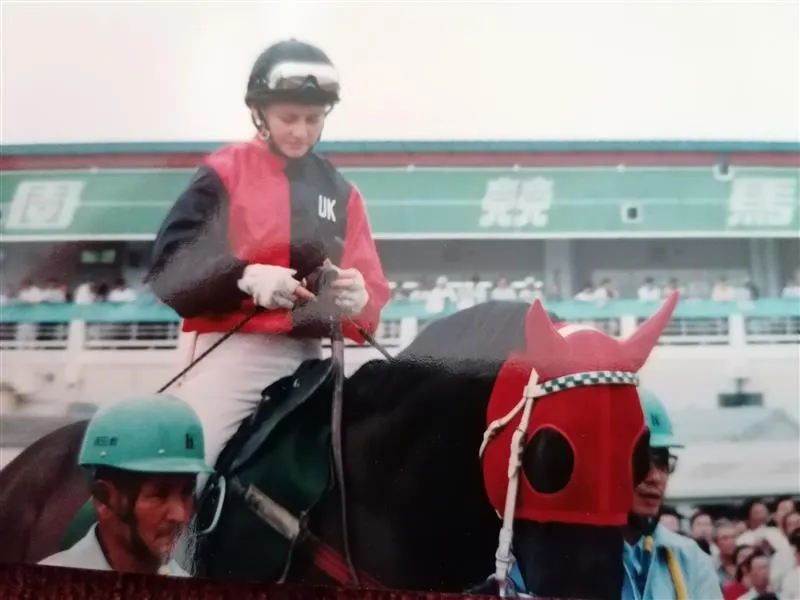
Kindred is proud to support the Women in Racing (WiR) programme Racing Home, delivered in collaboration with Simply Racing and Oxford Brookes University. The aim of the programme is to raise awareness of the challenges working mothers face when returning to work and highlight the impact having children can have on work/life balance.
The programme includes workshops and webinars to gather experience and insights, as well as a piece of academic research to capture data and make recommendations to the industry.
We spoke to Dana Mellor, a leading rider of her generation and a forerunner for the successful jockeys we have today. Today Dana coaches career-returners with Careers Collective. Dana has two teenagers and is a member of the Women in Racing mentoring scheme.
Dana, could you tell us a bit about yourself and your involvement in the racing industry?
I was born into racing as the daughter of a top professional NH jockey Stan Mellor. I rode out for my father while I was at school and for Jack Berry in Lancashire while studying law at Lancaster University. After completing my law finals one Friday, I had my first ride as an apprentice at Redcar the following Monday and rode my first winner at Haydock later that week. By the end of the season I had won the UK Glen International Apprentice Series.
I was then recruited to run a pilot scheme for what later became JETS (The Jockeys Employment & Training Scheme, now Jockeys Education & Training Scheme). There was little in the way of support for jockeys at the time and the Injured Jockeys Fund were looking to change that. We started by working with retired jockeys looking for employment and by the time I left racing in 2006, JETS was established as a career development scheme for current jockeys as well. It continues to thrive ever since.
More recently I’ve enjoyed working as part of the Lycetts Team Champion Award as a judge, to identify and reward best employment practices across racing yards.
As a rider and coach, do you believe you’ve had different challenges to men in the racing industry?
As a jockey, I think I was very lucky to be supported by so many people who wanted a female to break through the ranks. As one of only a few girls riding, the isolation at racecourses was often a challenge, where I’d sometimes be allocated a broom cupboard or even the ladies public loos as a changing room. I can honestly say I never felt discriminated as a jockey on account of being female. However, I knew there were others behind me who felt they weren’t getting the opportunities they deserved.
What benefits do you think a programme such as Racing Home can contribute to the industry (and beyond)? Why, in your opinion, is there a need for this type of programme?
Raising awareness about the impact of having children and the work/life balance issues juggled by working mothers is the first step towards a welcome culture change.
Women require different support than men to achieve their potential in the workplace. Their needs are varied and despite well-intentioned legislation, this cannot be packaged up into a one-size-fits-all solution. The problem is emphasised in an industry where the dominant drivers are so prevalent and usually left unchallenged.
Have you already taken some learnings from your involvement in the programme?
The webinar in April reminded me that we all have a unique experience. We all have different resources available and the nature of our role is hugely significant. We can learn a lot from racing’s response to the impact of Covid-19. The current climate has required greater flexibility as far as working from home. Hopefully, some lessons can be taken forward.
What do you hope the final outcome of this programme will be?
As showcased by the Lycetts Team Challenge Award over the last three years, there is evidence of best practice in the industry with some employers looking at their employees’ needs as well as their own, to work out win/win solutions. One potential outcome would be for this to become the norm rather than an exception. The current direction of travel is encouraging, and I sense a greater awareness gaining momentum in the racing industry.
What would you like to say to younger women in racing? And why should they be a part of this programme?
Senior and peer support is an essential part of personal growth and progression required for success. I’d encourage women to find a mentor or coach. You never know when you’re going to need support so belonging to a group like WiR is an opportunity to build your network and on-going development.

